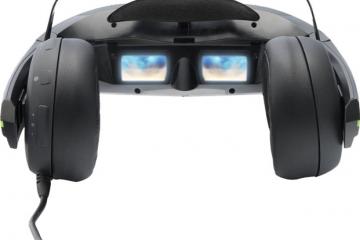

Look up, down or behind you and the world you’re immersed in is continuous. If you haven’t used one before, the experience is both a little strange and impressive. But it raised the question: “If virtual reality can make me sick, could it remove seasickness just as quickly? And the answer is: yes.”Ī virtual reality headset provides 360° immersion in a virtual environment, which, combined with sound, effectively seals out the real world. “I was shocked at how quickly I got motion sickness,” he recalls.

Jackson was introduced to VR gaming by his son. But it is this powerful feeling of being somewhere else that Dudley hopes to capitalise on, temporarily extracting the wearer from their real environment. Virtual reality had an awkward start in the consumer electronics market when it first became available to computer gamers around five years ago, and videos on YouTube show first-timer users crashing into furniture, having lost all sense of spatial awareness outside the headset.Įven latest generation VR games can be disorientating, and for many people induce motion sickness. The headset is totally immersive and has proved effective in testing to date. But overcome by seasickness as soon as he was offshore, Dudley returned to New Zealand disappointed, turning to his background in IT to find a solution. “I’d bought the boat, got ready over a number of years and was excited to cross oceans,” he explains.

New Zealand start-up See-Level promises to help sailors overcome symptoms of seasickness by bringing together movement sensor technology and virtual reality.įounder Dudley Jackson, originally from the Isle of Wight, started the business after being forced to call off his own circumnavigation plans.
#BEST DEVICE FOR MOTION SICKNESS GLASSES PROFESSIONAL#
In the Volvo Ocean Race there have been multiple instances of over half a professional crew being unwell at the same time. So even professional sailors learn to live with the debilitating condition rather than overcome it for good. What’s more, nothing invented so far has managed to work universally as an effective seasickness cure – and drug-based treatments are renowned for their side effects. Charles Darwin gave a warning to any of his readers tempted to romanticise sailing, declaring in The Voyage of the Beagle “if a person suffer much from seasickness, let him weight it heavily in the balance: it is no trifling evil which may be cured within a week.”īut while Darwin’s theory of evolution became established science, what causes seasickness still remains fiercely debated. A true seasickness cure has long been hoped for as the debilitating problem has followed sailors for centuries.


 0 kommentar(er)
0 kommentar(er)
